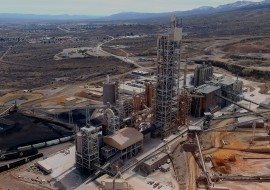The industrial sector accounts for more than one-quarter of U.S. greenhouse gas (GHG) emissions. Decarbonizing industry will require widespread energy management, new low-carbon industrial processes, switching to electricity and carbon-free fuels and feedstocks, and mitigation options such as carbon capture, utilization, and storage. This decarbonization will require early investment for several reasons, including the long lifetimes of equipment, the time required to transform production, competition with other nations, and industry’s central role in multiple critical supply chains.
The federal government must play a substantial role in funding and fostering industrial decarbonization in order for the United States to meet the Biden administration’s goal of 50%–52% reduction of GHG emissions from 2005 levels by 2030.*
The federal government already funds research and development of innovative industrial technology and supports energy audits and the training of energy managers. These efforts will have to evolve in scope and scale to meet the challenges of climate change. ACEEE advocates for Congress and federal agencies to enact policies that support better energy management, research and development of transformative technologies, accelerated technology adoption, development of a diverse workforce, transformation of key industrial sectors, and increased demand for low-carbon products.
Highlighted Resources:
*https://www.whitehouse.gov/briefing-room/statements-releases/2021/04/22…





